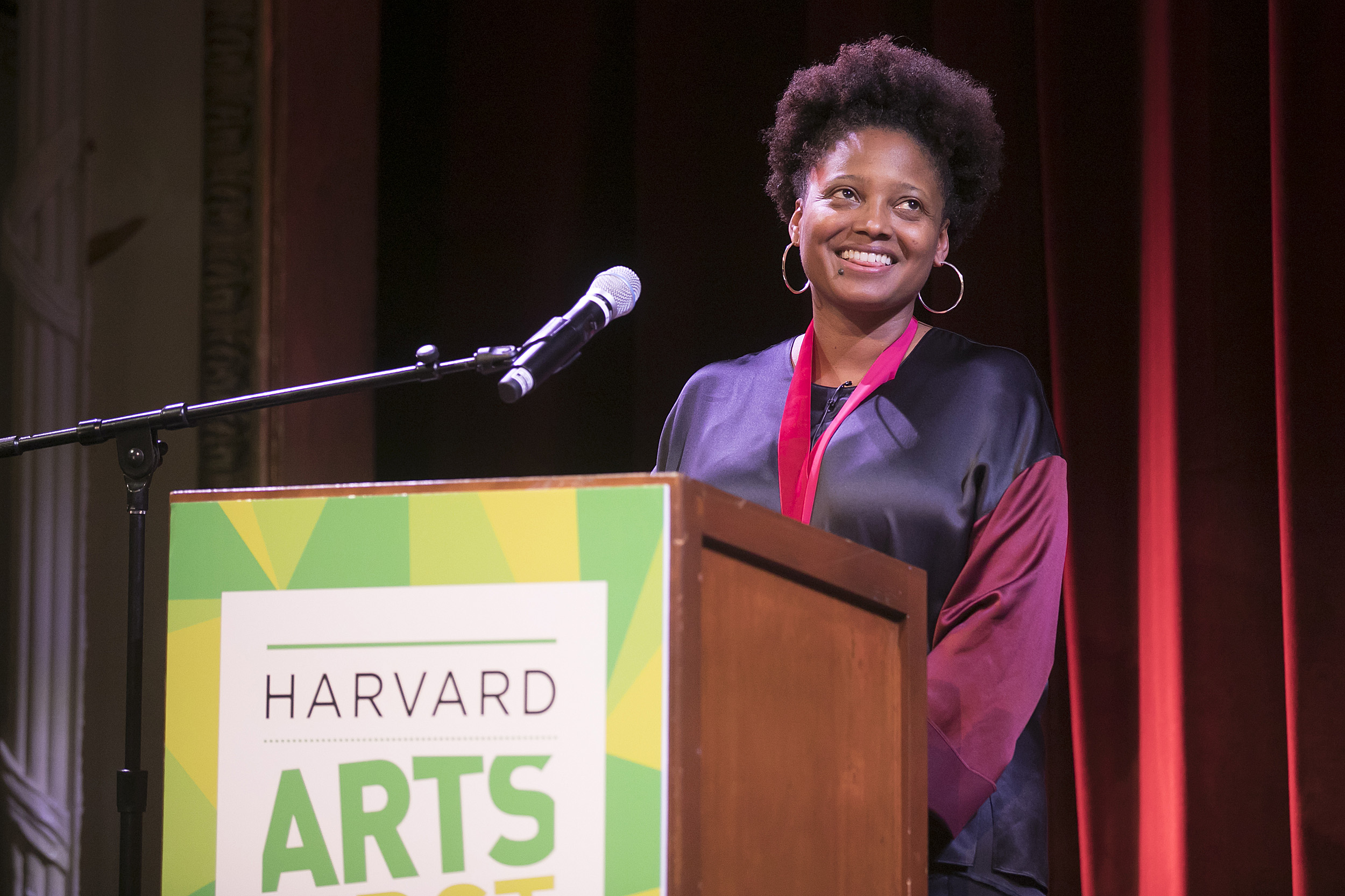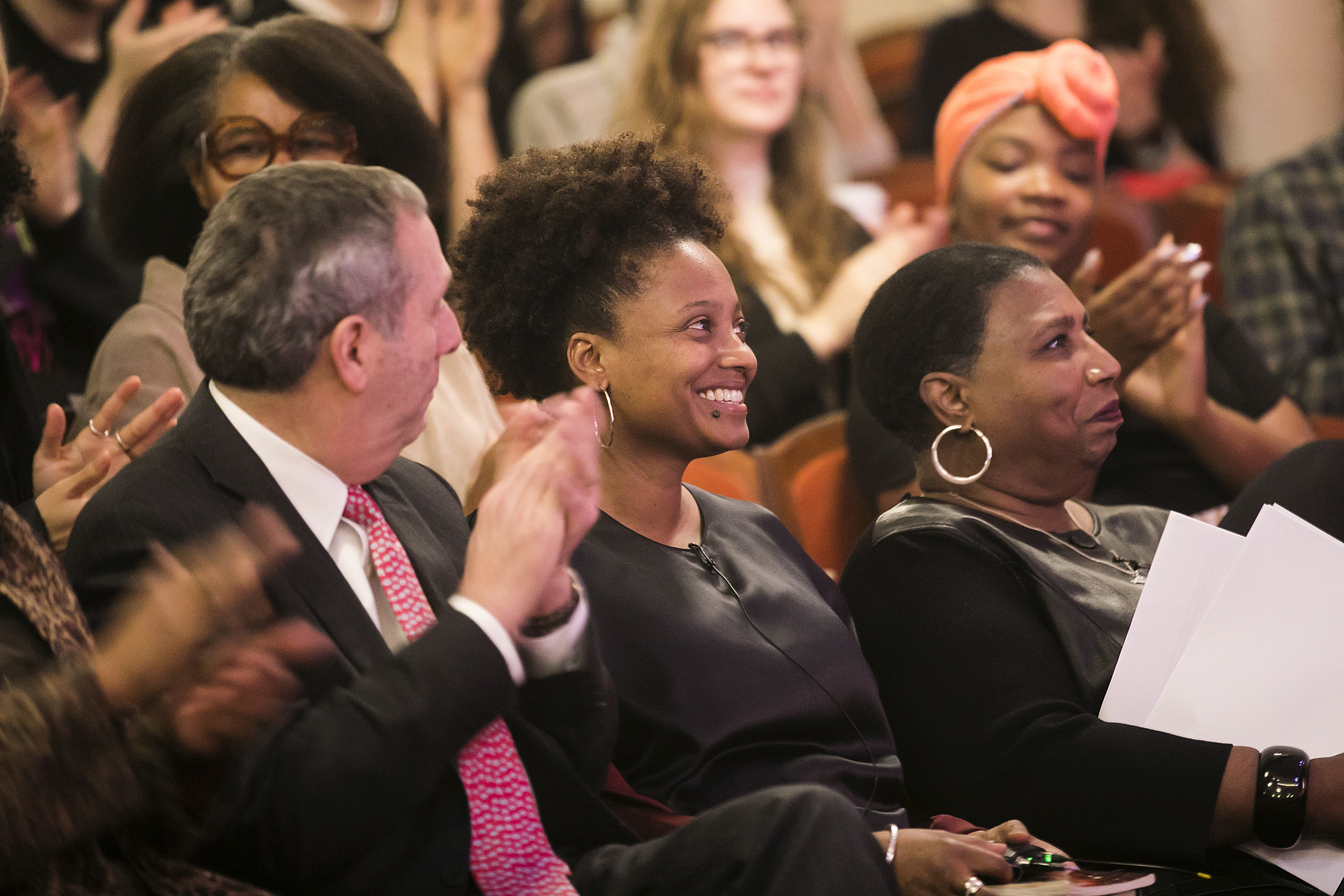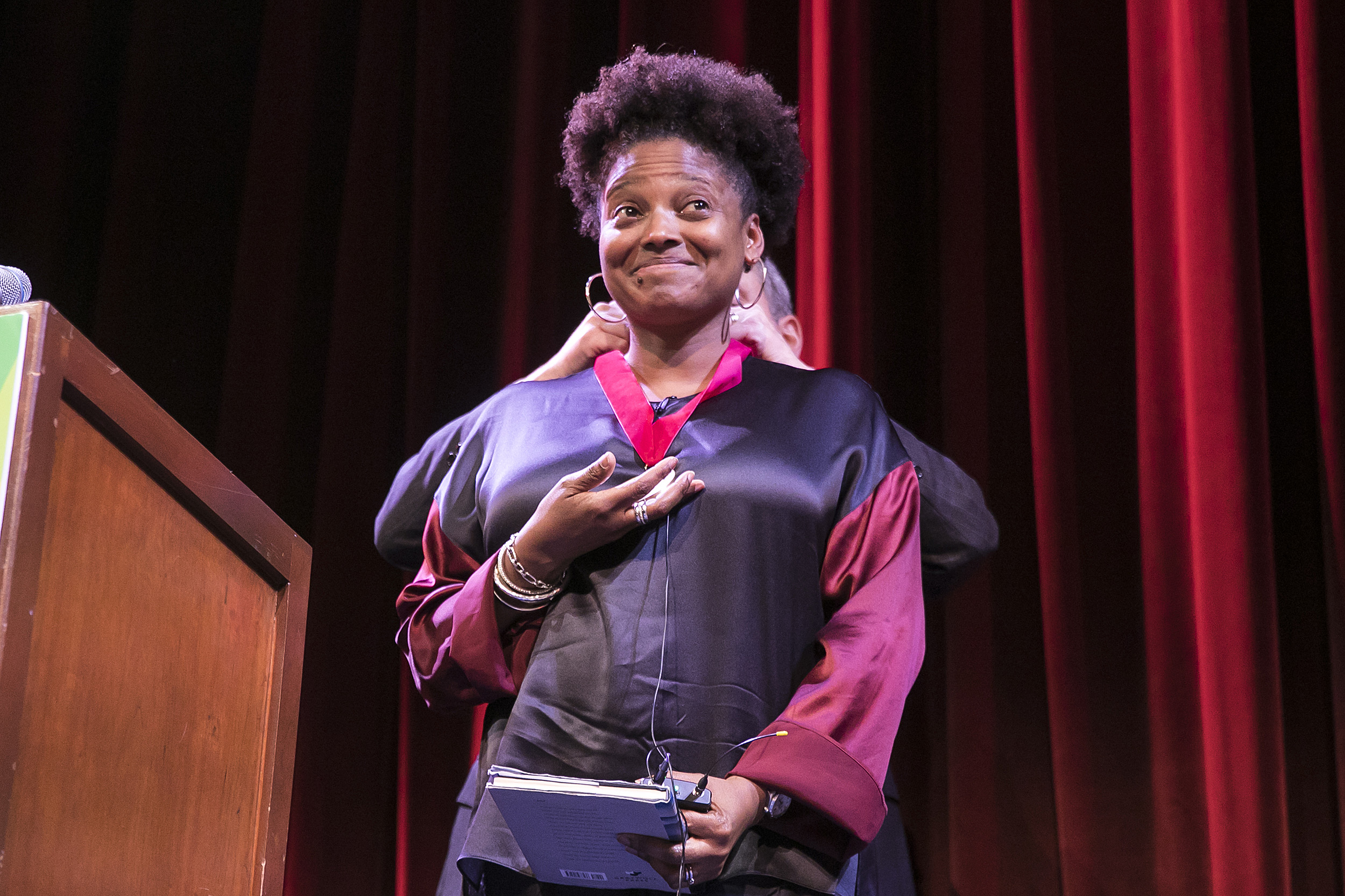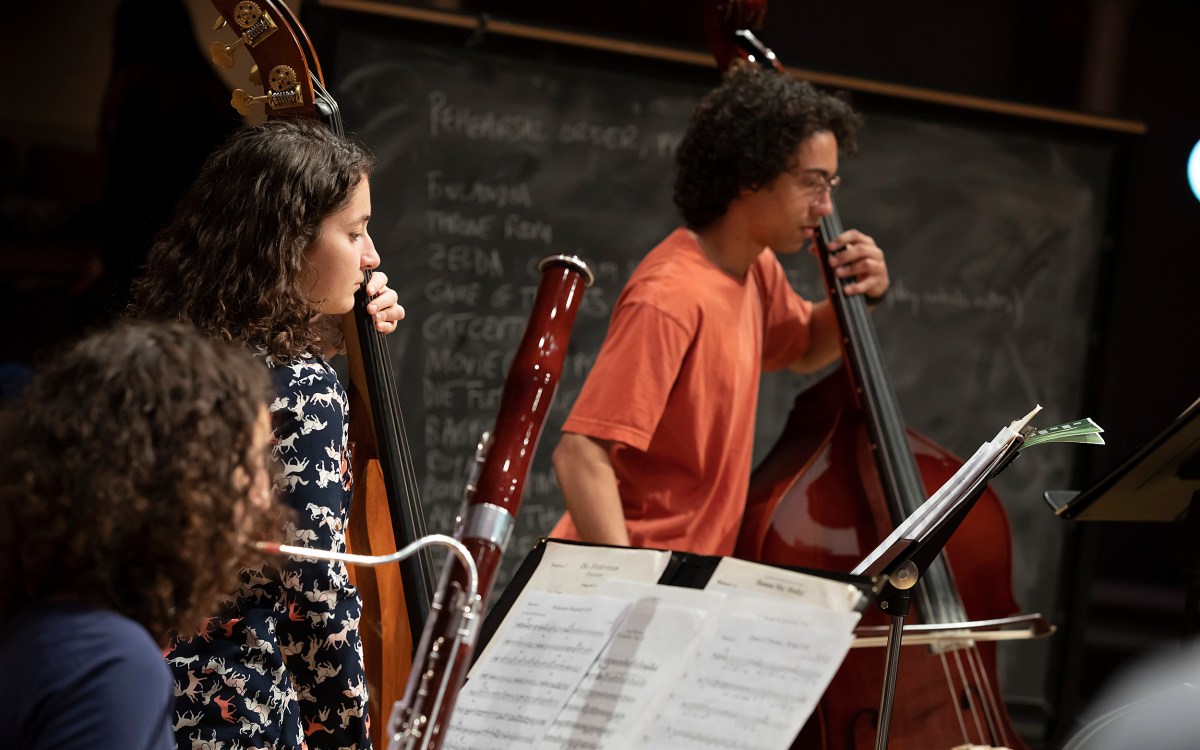
U.S. poet laureate Tracy K. Smith ’94 beams at the podium during the Harvard Arts Medal ceremony.
Jon Chase/Harvard Staff Photographer
Tracy K. Smith ’94 accepts Harvard Arts Medal
Lamont Library was an incubator for the poet laureate
Some of the most important time in Tracy K. Smith’s life was spent in the armchairs of Lamont Library.
During a tumultuous first year at Harvard College following the death of her mother, Smith found moments of clarity in the corners of the library, covering the pages of her sketchbook with poetry.
The certainty she felt in that library guided Smith when the rest of her life felt uncertain.
Nearly 30 years later, Smith ’94 was welcomed back to campus as the 2019 Harvard Arts Medal recipient at a ceremony Thursday in Agassiz Theatre, kicking off Arts First weekend. Smith was introduced by fellow poet and English professor Jorie Graham, who praised her unique voice and “remarkable bandwidth” as an artist.
In the years since College, Smith has become a prolific writer, publishing four collections of poetry on a vast range of topics, from the Civil War to outer space. She won the Pulitzer Prize for Poetry in 2012 and was named the 22nd poet laureate of the U.S. in 2017.
Ultimately, Graham said, “Tracy K. Smith grew up into the poet she dreamed, in Lamont Library, she might become.”
Smith is the 26th recipient of the Harvard Arts Medal, which is given annually to a graduate or faculty member who has achieved artistic excellence and made a contribution through the arts to education or the public good.
“Harvard is a place from which an astonishing number of this nation’s crucial artists have sprung,” said Graham, who is herself a Pulitzer Prize winner for poetry. “This year, it is a delight for me to celebrate the art form I love so dearly and its singularly glorious practitioner, Tracy K. Smith.”
Smith said receiving the medal is “an honor that means the world to me.”
The Arts Medal ceremony began with the introduction from Graham, the Boylston Professor of Oratory and Rhetoric, and ended with the medal presentation by Harvard President Larry Bacow. Most of the ceremony, though, was reserved for Smith to discuss her work with Boston journalist Callie Crossley.
Their conversation wound its way through many themes of Smith’s poetry: grief and pain, empathy, recognition of others’ humanity, love and intimacy, the natural world, and imagining God and the afterlife.


Tracy K. Smith is applauded by the audience and receives the Harvard Arts Medal from University President Larry Bacow, who places it around her neck.
Jon Chase/Harvard Staff Photographer
They touched on Smith’s travels through rural America as the poet laureate, which led her to community centers in Alaska and addiction rehabilitation facilities in Kentucky. Smith said she found herself continuously “acknowledging the amplitude of poems” as she heard them discussed in surprising contexts.
Prompted by Crossley, Smith also read several of her poems aloud, including one based on correspondence from black Civil War veterans and another titled “Refuge.”
Crossley said “Refuge,” in which the narrator sees her own life reflected in the lives of refugees, is an example of “the power of poetry that allows people to be seen.”
Graham praised Smith similarly, saying her work as poet laureate reflects her “deep commitment” to transmitting poetry’s power.
“If you want to be moved and inspired, watch those seeds of [Tracy’s] take root in people across this country who had no idea a poem could speak for them, to them, about them,” Graham said. “She is an awakener.”
Bacow said he was struck, after hearing Smith read and discuss her poetry, by how her work compelled him “to think about voice.”
“Your voice is captivating, and draws all of us in in such profound ways,” Bacow told Smith. “We are so proud of you, for all that you have done and all that you will do.”
Bacow ceremoniously fastened the medal around Smith’s neck and then offered her the podium, where she expressed her gratitude — to other poets like Graham, to her professors Seamus Heaney and Lucie Brock-Broido, and to Harvard itself.
Smith said returning to Harvard brought a combination of joy, homesickness, and a reminder of all that she struggled with as a student.
Receiving the award felt like a reassurance, she said. “The honor of the Harvard Arts Medal tempts me to believe that I’m following the path I once set out to find.”






